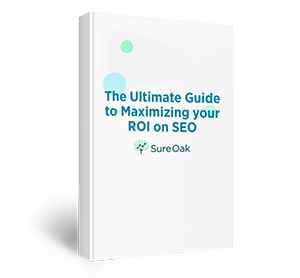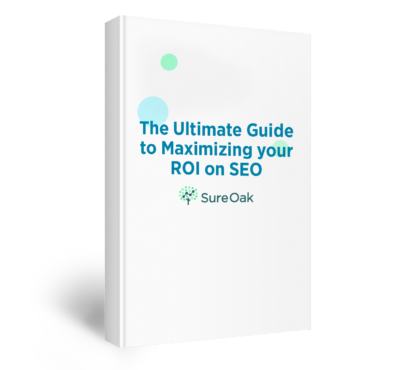Search engine optimization (SEO) is the process of improving your website’s visibility and relevance for search engines and users. SEO is a valuable tool that helps you drive more organic traffic, leads, and sales to your business.
But how long does it take for SEO to work? How can you measure your SEO success? What factors influence the speed and quality of your SEO results? In this article, we’ll answer these questions and more to help you become an expert in all things SEO.
What Does Success for Your SEO Program Look Like?
Before you start any SEO program, you need to define what success looks like for your business. Know your goals and objectives and key performance indicators (KPIs) you will use to measure your progress.
Some common SEO KPIs include:
- Rankings: How well your website ranks for your target keywords and phrases on search engines
- Traffic: The number of visitors your website receives from search engines
- Conversions: The number of visitors who take the desired action(s) on your website, such as filling out a form, signing up for a newsletter, or making a purchase
- Revenue: The amount of money your website generates
Depending on your business model, industry, and niche, you may have different goals and KPIs for your SEO program. No matter your goals, you need to set realistic and measurable expectations for your SEO strategy.
Factors that Influence When Your SEO Will See Search Results

There needs to be a definitive answer to how long SEO takes, as it depends on the strategies used and other factors. Here are some of the factors that influence how long it can take for SEO to work:
Content Quality and Depth
Content is the foundation of any SEO program. Content is what search engines crawl and index and what users consume and share. Content also helps you rank for relevant keywords, attract qualified traffic, and convert visitors into customers.
The more comprehensive and authoritative your content is, the more likely it is to rank well on search engines and drive organic traffic. Content optimized for search engines by strategically including keywords, titles, meta descriptions, and relevant headings and subheadings is also more likely to bring results. On the other hand, low-quality content that is not in-depth nor authoritative can be a factor in delaying SEO results.
Industry Competitiveness and Keywords
Another factor that influences how long it takes for SEO to work is the level of competition in your industry and niche. The more competitive your industry is, the harder you’ll find it to rank well on search engines.
Choosing the right keywords for your SEO program is crucial, as they determine your content’s and website’s relevance. Ranking well for highly saturated keywords can be challenging and time-consuming, as you must compete with many established websites with high authority. Thus, businesses may focus on ranking for less competitive keywords first.
Your Domain’s Authority
Domain authority (DA) is a metric that measures your website’s overall quality and trustworthiness. Its basis relates to the age of your domain, the number and quality of backlinks pointing to your website, the content and structure of your website, and more.
The higher your DA is, the more likely your website will rank well for your target keywords and drive organic traffic. However, if your domain authority is low, gaining visibility for your website will be easier and faster.
Your Resources
Another influential factor in seeing results is the amount of resources you invest in your SEO program, including time, money, and human capital. The more resources you have, the faster and better your SEO results will be.
SEO is challenging. It requires a lot of research, planning, execution, analysis, and optimization. Depending on the size and complexity of your website and business, you may need to hire an SEO agency or consultant.
A Timeline of an SEO Program
We have discussed the factors influencing the answer to the “how long does it take SEO to show results?” question. Now, let’s look at a typical timeline of an SEO program. While not fixed or universal, the timeline can give you a general idea of what to expect from an SEO program.
Website Audit, Keyword Strategy, and Content Planning
The first stage of an SEO program is to conduct a comprehensive website audit, strategize your keywords, and plan your content. This stage usually takes one to two months to complete.
A website audit analyzes your website’s current state in terms of technical SEO, on-page SEO, off-page SEO, user experience, and more. This audit helps you identify and fix any issues affecting your website’s performance.
Keyword strategy is the process of researching and selecting the best keywords for your website based on relevance, search volume, competition, and intent. Using relevant, optimized keywords for your niche helps to draw in the right audience and rank your pages higher in SEO search results.
Content planning is the process of creating a content calendar outlining what type of content you will create, when you will publish it, and where you will distribute it. Planning your content ensures you will produce consistent, quality content necessary for successful SEO.
On-Page Optimization & Content Development & Editing
The second stage of an SEO program is to implement on-page optimization, content development, and editing. This stage usually takes three to six months to complete.
On-page optimization is optimizing each page of your website for search engines. On-page optimization includes optimizing elements such as title tags, meta descriptions, headings, URLs, images, videos, and internal links.

Content development and editing, a key focus of content writing services, is creating quality content for each keyword that provides value to your audience. This includes writing original and engaging content, using keywords strategically, adding relevant headings, subheadings, images, and videos.
Link Building
The third stage of an SEO program is to implement link building. This stage usually takes six to 12 months to complete and see results.
Link building is acquiring high-quality and relevant backlinks from other websites that point to your website. Doing this helps to boost your domain authority and to rank on search engines.
Some forms of link building include the following:
- Guest posting: Writing and publishing articles on other websites related to your industry or niche and linking back to your website
- Outreach: Reaching out to other website owners or influencers in your industry and asking them to link to your website or content.
- Content promotion: Promoting your content on social media, email, forums, blogs, etc., and encouraging others to share and link to it.
- Broken link building: Finding and contacting websites with broken links related to your niche and offering your website or content as a replacement.
Measurement & Refinement
The fourth stage of an SEO program is to measure and refine your SEO performance, which is an ongoing and continuous stage.
Depending on your goals and chosen KPIs, strategies to refine and monitor SEO results include:
- Tracking and reporting your SEO KPIs, such as rankings, traffic, conversions, and revenue, regularly
- Testing and experimenting with different SEO elements, like keywords, content, and links, to see what works best for your website and audience
- Optimizing and updating your website and content based on the data and feedback you receive from search engines and users
Seeing Results. Hint: Don’t Quit Too Soon!
The final stage of an SEO program is to see results. Seeing results means reaching your SEO goals and objectives, including ranking well for your target keywords, driving more organic traffic, or generating more leads or sales.
However, don’t lose hope if you don’t see results immediately. Not seeing results for four to 12 months or longer is normal when starting your SEO journey. Additionally, seeing results doesn’t signal that it’s okay to stop working on SEO. SEO is a dynamic, ever-changing field requiring constant monitoring, analysis, and optimization, so it’s a never-ending process.
Short-Term vs. Long-Term SEO Results
One of the most common questions people ask about SEO is whether they can achieve short-term or fast SEO results. The answer is yes and no.
Yes, you can achieve some short-term or quick results with SEO by focusing on low-competition keywords. These keywords are usually specific and long-tail, such as “pink suede purse” or “pizza delivery in LA.” well, for these keywords can be easier, as you will have less competition and more targeted traffic.
These short-term results could be more sustainable and scalable. They may bring you little growth as they have limited potential and demand. Thus, you’ll still need to focus on achieving long-term SEO results by growing authority for broader keywords, such as “purse” or “pizza.” A long-term SEO strategy is essential for keeping up with changes in Google and other search engines — and new competition.
So, How Long Does SEO Take to Work?
SEO is a long-term and ongoing process requiring a lot of resources, skills, and patience. There’s no definitive answer to how long it takes for SEO to work, as it depends on various factors, such as content quality and depth, industry competitiveness, domain authority, and one’s resources.
However, based on our experience and industry standards, we can say it usually takes 4 to 12 months or more for SEO to show results. This means you can expect to see some improvement in your rankings, traffic, conversions, and revenue within this timeframe.
SEO isn’t a standalone tactic but a part of a holistic digital marketing plan. If you do it right, SEO can bring long-term benefits to your business.
While SEO may seem daunting, you don’t have to go it alone. Sure Oak is a leading SEO agency that can handle your entire SEO process. Our one-stop shop offers proven SEO and link-building strategies customized to your goals.
Schedule a free strategy session today to learn how we can help your business thrive.





